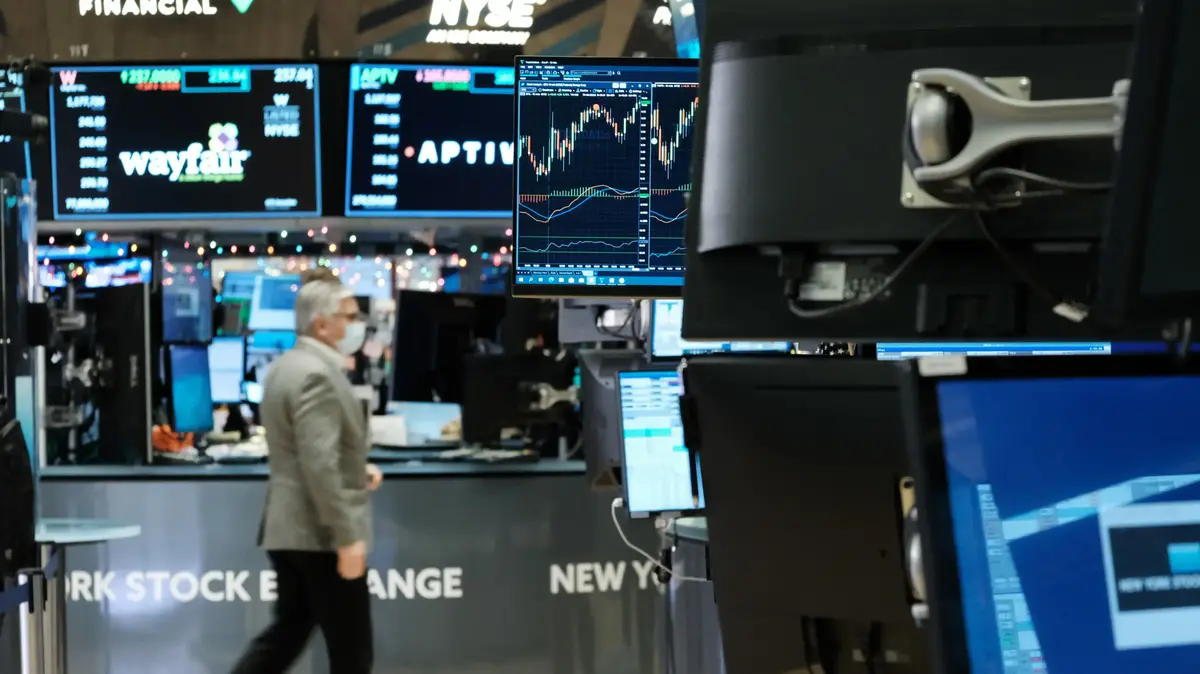Volatility is here to stay.
What to do with the investment portfolio?
The U.S. markets ended their worst week since October 2020, but the writing was on the wall. What should we expect, what to invest in and what to avoid?
Guy Beit Or
23/01/2022
Sunday, 23 January 2022, 09:47 Updated: 10:08
Share on Facebook
Share on WhatsApp
Share on Twitter
Share on Email
Share on general
Comments
Comments
U.S. stock markets have ended their worst week since October 2020, amid growing expectations that the Fed is expected to provide an aggressive monetary policy in the coming months, which will include raising interest rates and reducing the balance sheet in a relatively short period of time.
This, against the background of high inflation for 40 years.
Raising interest rates and draining liquidity in markets inevitably lead investors to re-price the markets, with the background of supply chain disruptions continuing, oil and commodity prices peaking and economic data beginning to signal the weakness of the private consumer.
More on Walla!
Bad movie: Netflix crashed and toppled Nasdaq with it
To the full article
Very restless.
Wall Street last week (Photo: GettyImages, Spencer Platt)
Beyond these developments, it is impossible not to mention a number of key companies that have reported disappointing results that have led to sharp declines in their value and dragged their entire sector down.
Two notable examples are Netflix, which fell just over 20% on Friday, Goldman Sachs, which fell 8.0% when its report was published, or JPMorgan, which fell more than 6% after the publication of its report.
The main victims of these developments are also the growth companies whose multipliers have skyrocketed over the past two years.
The cracking index, for example, has already entered the territory of correction in the past week and is 14.2% below the peak it reached last November.
The current situation in the markets is complex, and in light of the high and temporary environment of inflation, it is difficult to see how the Fed can calm down, since interest rate hikes, as well as a reduction in the balance sheet, are literally the order of the day.
After years of unprecedented returns, it seems that investors need to prepare for a period of increased volatility in the markets.
What do you do in a bag?
Already a few months ago we recommended to start and move to a more defensive strategy in the stock markets against the background of a number of basic assumptions.
Inflation will accompany us for quite some time.
Central banks will be forced to respond to this inflation, while raising interest rates aggressively from what is estimated.
We have estimated, and we still estimate, that economic activity is expected to slow significantly this year.
The markets are trading at extremely high multipliers.
Do not expect stability in the near future (Photo: GettyImages)
Entering an increased period of volatility that we expect to accompany us for an extended period of time, we recommend a lack of weight in the United States that is at a vulnerable point, especially given the high weight of its growth stocks. Within the United States we recommend focusing on basic consumption, infrastructure, real estate and energy. In addition, we recommend companies dealing with technology infrastructures such as payments, security and cloud that in the new economy are likened to basic infrastructures like electricity and water.
Outside the United States, we continue to recommend overweight In Israel, in Europe and especially in Italy and Spain, in addition, it is worth starting and opening your eyes to the emerging markets that are expected to benefit from the change of direction in China, where only two interest rate cuts were made last week.
In the bond market, we continue to recommend a position that is expected to enjoy an environment of high inflation and weak growth. In Israel, the short and medium-term shekel channel is expected to hit
, however, the long shekel channel is facing some forces that are expected to work in opposite directions. Some run for safe assets will lead to a decline or at least stability in long-term bond yields.
Therefore, the stagflation mix combines short-term gains that will benefit from inflation along with the long-term gains that will benefit from weakness in markets and economic activity.
In the corporate channel, we continue to recommend increased exposure to high-rated bonds with preference for short-term bonds such as banks, which are an excellent alternative to government bonds, with a relatively low level of risk.
The writer is the chief economist of Psagot Investment House
Of money
Tags
Wall Street








